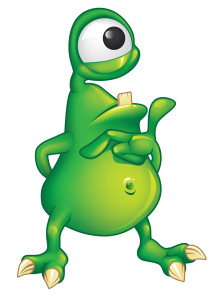How Qualitative Research Decodes Human Behavior
 I very much enjoy qualitative research projects. Whether I’m moderating, or running a project from start to finish, it’s a great way to combine my love of language, my fascination with people and their behavior as consumers and the fun of solving marketing riddle. Trouble is, most people don’t quite get what I do.
I very much enjoy qualitative research projects. Whether I’m moderating, or running a project from start to finish, it’s a great way to combine my love of language, my fascination with people and their behavior as consumers and the fun of solving marketing riddle. Trouble is, most people don’t quite get what I do.
Declaring, “I am a qualitative researcher,” to most people is a good way to test their blank stare reflex. Sometimes I hear comments like “A what?” “What’s that?” and “Is that like a taste tester?” If they really want to know, I will explain with lots of cool and interesting stories about “qual” and what it can do. But sometimes I think it might be easier to say, “Well, I’m a professional alien.”
So why do I find qualitative research so darned interesting? As we all know, humans are complicated decision makers. If we made our choices based solely on logic and facts, we’d all be wearing reasonably-priced undergarments, drinking generic coffee brewed at home, cooking store brand pasta, and reviewing the Congressional Record to make our voting selections. While our logical, “left-brain” sensibilities give us some direction, it’s our creative, “right-brain” perceptions that color our lives.
Qualitative research seeks to untangle the emotional and associative processes that separate humans from well, Mr. Spock. Seemingly part artist and part scientist, the qualitative researcher is trained to discover perceptions, opinions, beliefs and attitudes – those attributes that fill out the universe of emotional color that exists between black and white.
Meet the Professional Alien
Consider a real estate agent’s wise counsel to fill the house with the aroma of freshly-baked muffins prior to the arrival of a prospective buyer. Is the goal to demonstrate that the oven works? That the seller is a good baker? Of course not. The seller is hoping to wrap the possible buyer in the warm assurance of coming home, to set in motion a chain of feelings that transform a building into a cozy household: mom, love, melting butter, relaxation, warm tea, peace. A qualitative researcher works to uncover those powerful associations.
While this warm muffin analogy may seem intuitive, let’s imagine a qualitative researcher from an alien civilization who might wonder why the seller rushed home to bake breakfast food at 3:00 in the afternoon. Indeed, earlier quantitative research by this alien colony may have revealed that in 37 percent of successful home-selling transactions, some type of baking occurred. Curious indeed. Is there a logical connection? The alien investigator knows little of our human culture and must discover why the muffin ritual adds value to home selling.
At the outset, the researcher might try to find out which factors influence the purchase of a home. Price, age, location and condition might all come out early in the study as important attributes. But if those factors are pretty much equal, as they often can be in home buying, why, wonders our alien qualitative researcher, will buyers go for one property over another? Facts on the table, the conversation will probably move to emotions and feelings. “Why did you pick 20 Rose Lane over 54 Lily Road?” asks the alien moderator, who is a bit perplexed since 54 Lily Road was 324 square feet larger. “Because 20 Rose Lane felt like home,” answers our earthling, settling back into her chair because, after all, everyone knows what home feels like. Right?
Home. This alien comes from a culture that has no such concept. “Can you describe home to me?” Soon human respondents offer up the intangibles: comfort, love, mom, family, holidays — all attributes which, in fact, are strikingly absent from the empty houses that are up for sale. After some further probing, the alien qualitative researcher (who has been reading up on human sensory experiences), has a hunch. “Can you tell me about some smells that you associate with home?” Freshly cut grass, mom’s brand of soap, crackling fire, something baking in the oven. Bingo! “How do those smells make you feel?” asks the alien qualitative researcher. “Freshly cut grass reminds me of Dad, outdoors, in autumn.” “Mom’s brand of soap, well, hugs, morning, safety, love.” Then our alien qualitative researcher prompts: “How about something baking in the oven?” “Mm, holiday cookies, comfort food, love, coming home.”
Suddenly our alien qualitative researcher has an insight. A smell with strong home-like associations can charge an empty building with such emotional power that the human “right brain” glows with positive energy and wants to be there; maybe even for a lifetime.
A good qualitative researcher is always a bit of an alien, seeking to uncover the mysteries of that enigmatic human “right brain.” It’s all about understanding what it is that makes people tick. No matter the industry or the product I’m studying, it all boils down to gaining understanding. If you ask me, it’s fascinating business.

Recent Comments